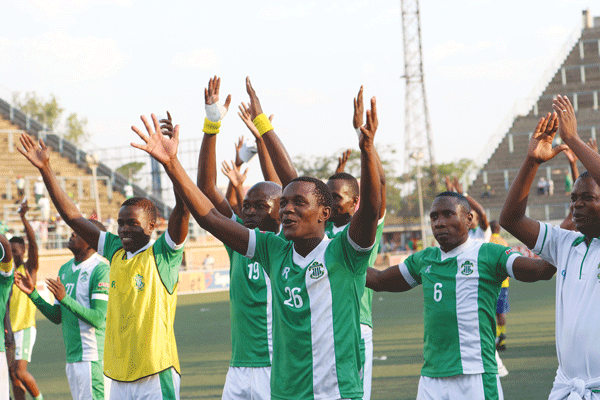
BARELY a week after pulling off the biggest upset of the season in the prestigious Confederation of African Football (CAF) Champions League, CAPS United are now engaged in another fierce battle – this time against their club officials over unpaid dues.
Sports Reporter/FifPro

The triumphant squad, fresh from eliminating five-time African champions TP Mazembe, refused to train last Thursday because the club owes them salary and bonus payments dating back to months ago.
Now, after qualifying for the lucrative CAF Champions League group stage and with the club set to receive a $550 000 starting fee from Africa’s governing body CAF for reaching the competition’s group stages, players expect their outstanding wages.
“We didn’t even inform the club that we would not show up for training, because they know we want our money,” one player said on condition of anonymity. “What else can we do?”
Last season, CAPS United won the Castle Lager Premier Soccer League title, even though players regularly boycotted training because they were owed money.
“It is about time that the club fulfils its part of the bargain,” said Desmond Maringwa, president of the Footballers’ Union Zimbabwe.
- Chamisa under fire over US$120K donation
- Mavhunga puts DeMbare into Chibuku quarterfinals
- Pension funds bet on Cabora Bassa oilfields
- Councils defy govt fire tender directive
Keep Reading
“The players have shown a real good working ethic, now the club must meet its promises …”
Despite the training boycott, CAPS United players fulfilled yesterday’s final of the Zimbabwe National Army Charities Shield, an invitational tournament organised to raise awareness for the army’s charity work for the needy in the country.
The Lloyd Chitembwe-coached side won 3-2 the ZNA Charities Shield in a penalty shoot-out after the match ended nil-all at regulation time.
According to FIFPro’s 2016 Global Employment Report, 37% of football players in Zimbabwe experienced non-payment issues.
FIFPro is the worldwide representative organisation for 65 000 professional footballers.
“The situation could even be worse,” said Maringwa. “I think it is about 50-50.”
“Sometimes our clubs make too many promises to get a player to sign with them. They then expect to find a sponsor later during the season, but if that does not happen, it’s the player who suffers the consequences.
“Our clubs must stop lying and tell our players exactly how much money they really have.
“We need our football to be honest.”
Only after CAPS United had received a $100 000 championship bonus for winning last season’s Premier League did the club pay players part of their overdue salaries.
The forthcoming season starts next weekend, with Zimbabwe’s football governing body, Zifa, introducing a licensing system for the league where clubs will only receive a licence if they don’t have outstanding debts to players.
Maringwa hopes it solves the non-payment problem.
“Our players are patient and they will always wait for a while, but in the end they must be paid what they have been promised.”











